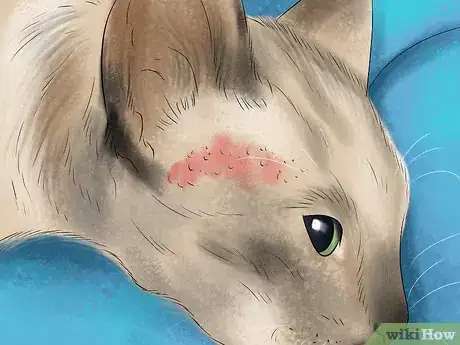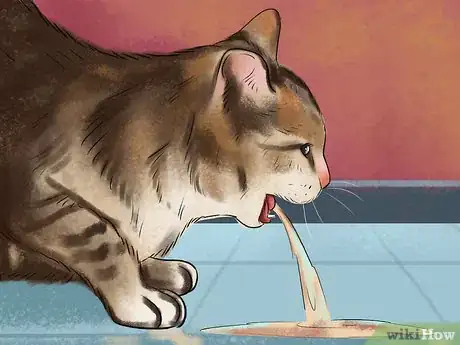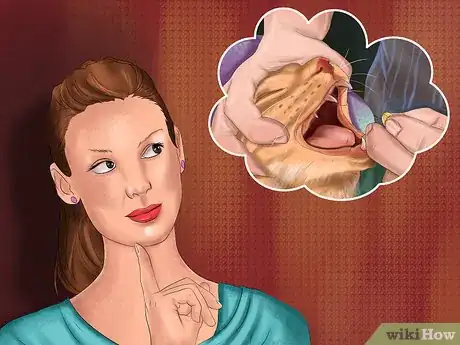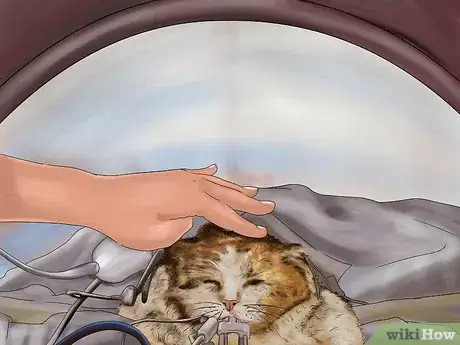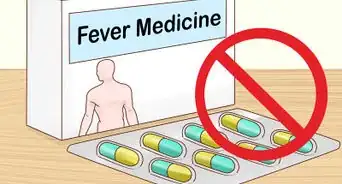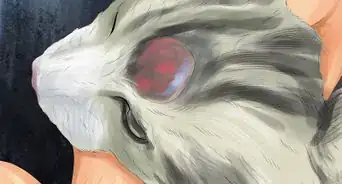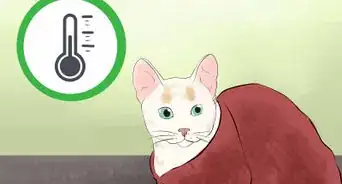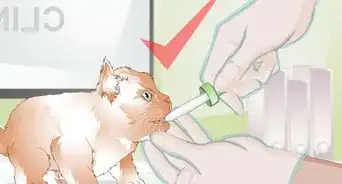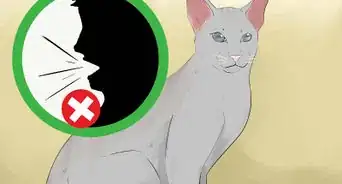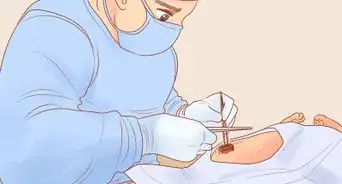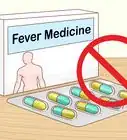This article was co-authored by Lauren Baker, DVM, PhD. Dr. Lauren Baker is a Veterinarian and Assistant Scientist at the University of Wisconsin-Madison. With over 10 years in veterinary medicine, she specializes in the concept of “one health,” which uses insights from veterinary medicine to help human medical research. She holds a Ph.D. in Comparative Biomedical Sciences, a Doctor of Veterinary Medicine, an MS in Comparative Biomedical Sciences, and a Bachelor’s degree in Psychology from the University of Wisconsin-Madison.
This article has been viewed 21,554 times.
You may be concerned when you start to notice that a cat is shaking or tilting its head. A cat that is shaking or tilting its head could have a number of possible health issues, such as an infection, a nutritional deficiency, a neurologic disease, or a metabolic disease.[1] If you notice a cat shaking or tilting its head, you should check the cat for other symptoms. You should then bring the cat to the vet right away so the vet can examine the cat and treat the cat’s condition.
Steps
Checking the Cat for Other Symptoms
-
1Look at the cat’s ears for redness or irritation. A cat shaking or tilting its head can be a symptom of an ear infection or a toxin in its ears. Check the inside of the cat’s ears by putting the cat in your lap and flipping over its ear flap. Look for any redness or irritation around the outer ear area. Notice if there is any fluid coming out of the ear or an obstruction of any kind visible on the outer ear.[2]
- Ear mites are a common infestation in cats that will also show up as red, irritated ears with lots of dark debris. The mites make the cat’s ears very itchy and uncomfortable. See your veterinarian so they can treat the mites.
- If you suspect your cat may have an ear infection that is causing it to shake or tilt its head, bring it to the vet right away for treatment. Ear infections in cats should be addressed so they do not get worse or become a more serious health issue.
-
2Check if the cat is falling or rolling to one side. Pay attention to how the cat is standing or walking. Notice if the cat is falling or rolling to one side as it tries to walk or stand. It may also stumble or walk in circles. This, combined with the shaking or tilting of its head, could be a symptom of vestibular disease, which is a serious condition that needs immediate treatment.
- Cats with vestibular disease often tilt their head and fall to one side because they are feeling imbalanced or lack coordination due to the disease.
Advertisement -
3Notice if the cat is vomiting. This is another known symptom of vestibular disease. If the cat is vomiting, in addition to the head tilting or shaking, you should bring it to the vet right away.[3]
-
4Check if the cat has no appetite. Try offering the cat food to see if it has an appetite. You can also look at the cat’s food bowl to see if it is eating. If the cat is not eating and has not eaten in 24 hours, this, combined with the head tilting or shaking, could be a symptom of a serious medical issue.
- The cat may not be eating due a general feeling of being unwell or due to a more specific medical issue. Your vet will be able to determine the exact cause.
-
5Consider any medications you may have recently given your cat. Sometimes head tilt can be caused by a reaction to a medication. Even if you did not give your cat any medications, double check that they did not get into any medications that you might have laying around in your home.[4]
Bringing the Cat to the Vet
-
1Let the vet examine the cat. The vet will do a complete physical exam as well as a blood test and a urinalysis. The vet will exam the cat’s ears to determine if it has an ear issue. They will also use the blood test and the urinalysis to help determine the cause of the cat’s symptoms.[5]
- Depending on the cat’s other symptoms, the vet may also need to do x-rays, a computed tomography (CT) scan, or magnetic resonance imaging (MRI).
-
2Provide medical information about the cat. If you know about the medical background of the cat, such as if it has had issues with head tilting or shaking before, you should tell the vet. The vet may also ask you about the cat’s normal diet, as well as any supplements, medications, or additional foods you may have fed the cat.[6]
-
3Get a diagnosis from the vet. Once the vet has completed all testing, they can give you a clear diagnosis. Possible diagnosis for a cat who has head tilting or shaking could be an ear problem, such as an ear infection or an ear wound. There are also more serious possibilities like vestibular disease.
-
4Discuss treatment options with the vet. Depending on the diagnosis, your vet will outline several treatment options for the cat. If the cat has an ear problem, it may be prescribed antibiotics or topical ear medication. The vet may also prescribe anti-vertigo medication if the cat is struggling with its balance.
- If the cat has a severe disease like vestibular disease, it may need to be hospitalized and put on intravenous fluids. It may also need surgery to treat the disease.
References
- ↑ http://www.petmd.com/cat/conditions/neurological/c_ct_head_tilting
- ↑ http://pets.webmd.com/cats/guide/cat-ear-care-problems#1
- ↑ http://www.petmd.com/cat/conditions/neurological/c_ct_head_tilting
- ↑ https://www.vetary.com/cat/condition/head-tilt
- ↑ http://www.petplace.com/article/cats/diseases-conditions-of-cats/symptoms/head-tilt--in-cats-vestibular-signs
- ↑ http://www.petplace.com/article/cats/diseases-conditions-of-cats/symptoms/head-tilt--in-cats-vestibular-signs
About This Article
Your cat may be fine if it's shaking or tilting its head, but you should take it to the vet if you're also seeing symptoms like irritation or redness in its ears, falling or rolling to one side, vomiting, and loss of appetite since this could mean that your cat has a medical condition that needs attention. When you’re at the vet, they’ll do a physical exam and run tests to figure out what’s going on, such as whether it’s an ear infection or vestibular disease. Then, you can follow their treatment recommendations for your cat. For more advice from our Veterinary co-author, including how to give your vet additional medical information about your cat to help them make a diagnosis, read on!
